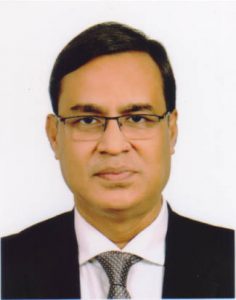Agriculture is the largest sector of Bangladesh, employing more than 46% of the total population, contributing 13.50% of the total GDP (BBS, 2018). The sector comprises of crop, livestock, fishery, forestry and many cross-cutting areas. Although, our natural resources are finite and the productivity of land and water are diminishing, nevertheless the agricultural productivity has increased as a result of application of better science and technology and improved management practices. Besides self-sufficiency in the main staples, we have to think about nutrition, macro and micronutrients and safe food. The government already achieved targets of Millennium Development Goals within 2015 and the Honorable Prime Minister of the Government of the Peoples Republic of Bangladesh Sheikh Hasina awarded recognition from United Nations for achieving these goals. The country is now on the way to achieve Sustainable Development Goals (SDG) by the year 2030 and be a developed country by the year 2041. The two important goals of the SDG are; No Poverty and Zero Hunger. The government has declared different programs to achieve these goals. The members of the Bangladesh Agricultural Economists Association (BAEA) are working closely with the government to achieve these goals. BAEA should revamp its programs to achieve a production level of more than this marginal sufficiency.
The BAEA is working from 1977 to contribute policy supports as well as implementation strategy of the government initiatives. The BAEA already conducted 16 National and International conference in different field of Agricultural sector. The outcome of the conferences published in the Farm Economy Journal. The association also organized seminars in preparation of national budget every year. The members of the organization are working on feasibility study of the variety and technology developed by different Agricultural University and Research Organizations of Bangladesh. In addition the members are contributing to identify the bottlenecks of the developed varieties & technologies and provide suggestions to overcome. The members of the organization are contributing in formulating the five year plans, perspective plan, delta plan 2100. Moreover, the members are contributing in formulating and implementing food policy, agricultural policy, environment policy etc. and in flourishing the rural economy of Bangladesh. The members are also contributing in the field of Government Administration, Bangladesh Police and different civil service cadre. They are also working in different Banks, Financial Institution, in development organizations and as an entrepreneur.
We hope that with the active participation of the members of Bangladesh Agricultural Economists Association the executive committee will continue its effort to achieve the goals and targets of the association.

Mr. Sajjadul Hasan
President
Bangladesh Agricultural Economists Association

